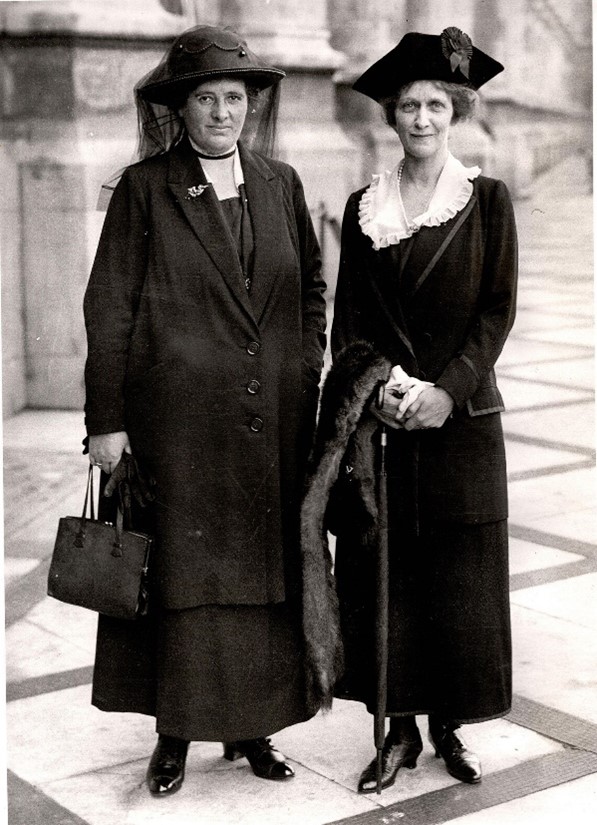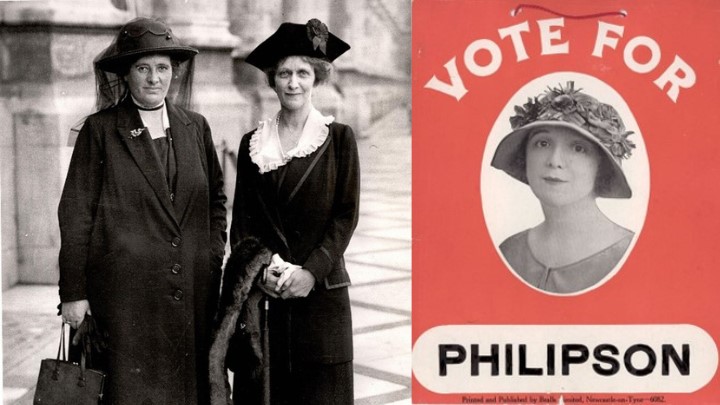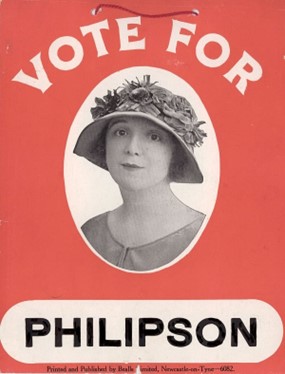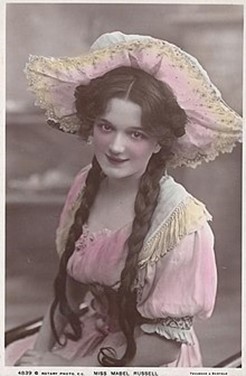Much has been written about Constance Markievicz, the first woman elected to parliament at the general election 1918 and Nancy Astor, the first woman to take her seat in parliament a year later via a carefully controlled by-election. However, much less is known about who came next, those women elected between Astor and the first cohort of Labour women mostly elected at the general election of 1923.
During the 1923 election, candidates Margaret Wintringham, Nancy Astor and Mabel Philipson were dubbed ‘Piety, Sobriety and Variety’ and the following limerick appeared in The Times (London):
‘Lady Astor, MP for sobriety,
Mrs Wintringham; She’s for propriety,
Now Berwick-on-Tweed
With all speed has decreed,
Mrs Phillipson wins – for Variety’

‘Piety’: Margaret Wintringham (Liberal, Louth Lincs)
Margaret Wintringham has the distinction of being the first Liberal woman elected to parliament and the first woman born British too. As she was in mourning following the death of her husband, the sitting MP for Louth, she was a ‘silent candidate’ and chose not to speak in public throughout the election campaign. Wintringham did have plenty of experience in local politics and women’s groups. Wintringham was considered ‘the most typical British woman the House of Commons has had among its members’ (Westminster Voices, 1928, 198). That said, Wintringham and Astor became close friends and supportive colleagues despite their political colours. Wintringham was re-elected at the general elections of 1922 and 1923. She supported protections for young girls and was vocal on the equal franchise and the right of women peers to sit in the House of Lords.
‘Sobriety’: Nancy Astor (Conservative, Plymouth Sutton)
“Drink promises you everything but gives nothing.”
Astor was well known for her stand on temperance, a result of her Christian Science faith alongside personal experience. Her anti-drink platform resulted in some of the most misogynistic personal criticism – which she received in her mailbag, the press and in the House of Commons.
On 24 February 1920, Astor delivered her maiden speech about retaining wartime drink restrictions to a largely hostile chamber. There was a general concern that since Astor was born in the US she might try to introduce prohibition into the UK. In 1923, she became the first woman to introduce a private members bill – the Intoxicating Liquor (Sale to Persons under Eighteen) Bill which passed into law and is the reason why we still must wait until we are 18 to drink alcohol today. You can find out more about the act here: Intoxicating Liquor (Sale to persons under 18) Act – UK Parliament.
‘Variety’: Mabel Philipson (Conservative, Berwick upon Tweed)
Before being elected to parliament Philipson had a successful career as a Gaiety Girl and comedy actress before moving into serious drama in 1913. She married her second husband, Hilton Philipson in 1917 and, in 1922, he was elected as National Liberal MP for Berwick upon Tweed. However, he was unseated due to concerns about financial irregularities during his election campaign and was barred from standing again for 7 years. Philipson took his place though as a Conservative party candidate. Her theatricality was a vote winner and served her well on the hustings though her background did raise some eyebrows. She was elected in 1923 by a larger majority than her husband had been. Although Astor, Wintringham and now Philipson had been elected to their husbands’ seats, Philipson in particular ‘was seen as somewhat lightweight and one of the less active women MPs’.
Astor, Wintringham and Philipson faced a ‘political baptism of fire’ and a maelstrom of press and public attention. Public scrutiny of women’s dress, deportment and conduct were often of far greater interest to the electorate and the press than their policies. All aspects of their lives were fair game – has anything really changed?
Further reading
- Elaine Harrison, ‘Wintringham [née Longbottom], Margaret (1879–1955), ODNB (2011)
- Duncan Sutherland, Philipson [née Russell; other married name Rhodes], Mabel (1886–1951), ODNB
- Daniel Grey and Jacqui Turner (eds.), ‘Nancy Astor, Public Women and Gendered Political Culture in Interwar Britain, Open Library of Humanities (2020) Open Library of Humanities | Collection: (openlibhums.org)
- Rachel Reeves, Women of Westminster (London, 2019)
- Iain Dale and Jacqui Smith (eds), The Honourable Ladies, Volume 1 (London, 2018)



